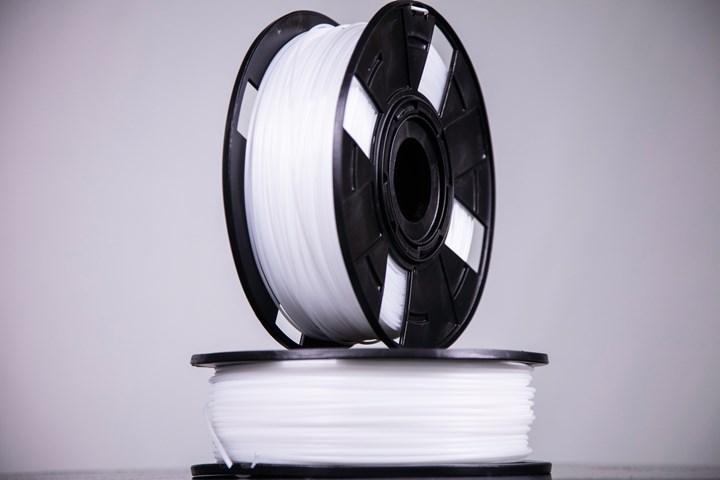Braskem Introduces E-Commerce of PP Filament Spools for 3D Printing and Additive Manufacturing
Available through thermoplastics distributor M.Holland, this is the first time Braskem’s PP 3D printing filament spools are targeted to all consumers via e-commerce.
Philadelphia-based Braskem recently announced the introduction and availability of its PP filament spools for 3D printing for online purchase through international distributor of thermoplastics M. Holland, Northbrook, Ill., which has newly launched eStore www.mholland3d.com. The launch includes two grades of PP filament for fused filament fabrication (FFF/FDM) designed for use for both industrial and personal 3D printing.
Braskem’s PP 3D printing filament is said to be ideal for additive manufacturing based on its recyclability, impact strength, chemical resistance, and dimensional stability that has durable living hinge capabilities as well as a lower density than other plastics; properties that make PP an attractive material for a wide range of 3D printing applications.

Braskem filaments are designed with the end user in mind, making them a good choice for rapid prototyping, custom product design, lightweighting, optimizing geometries, and designing spare parts. Braskem filaments are available in both 1.75 mm and 2.85 mm diameters to fit a wide range of printer applications.
As reported previously, Braskem’s ongoing commitment to innovation and bringing new solutions to the additive manufacturing sector, was demonstrated last year through its investment in a new dedicated additive manufacturing lab as part of the expansion of its Innovation & Technology (I&T) Center located in Pittsburgh, Pennsylvania.
Related Content
-
The Connector Conundrum: 3D Printed Mold Tooling’s Role in Innovation
ReelView Fishing faced an electronics obstacle in the development of its new technology for underwater video. Additive manufacturing for moldmaking allowed for the speed necessary to iterate to a solution. How inventors and invention will benefit from new ways of obtaining production-ready tooling.
-
5 Trends in 3D Printed Injection Mold Tooling
3D printing has moved beyond conformal cooling, and is now being applied to injection molds more broadly. Observations on additively manufactured mold tooling from the Plastics Technology Expo — PTXPO 2025.
-
Daimler, OMIC Evaluate Wire-Fed DED for Moldmaking
3D printing a core and cavity on machine from Gefertec, followed by machining, allowed for a complete mold tool to be produced in three days.






